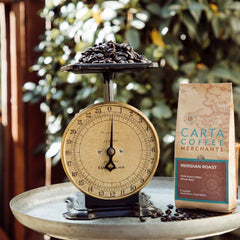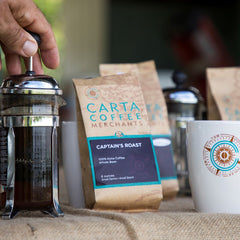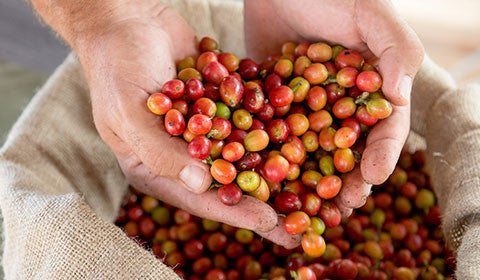Posted on

Pregnant women must make certain sacrifices over the course of their 9-month pregnancy. For example, having a few glasses of wine as you eat Tuna Sashimi are strongly discouraged by doctors and the medical community as alcohol and raw fish can negatively affect the health of the fetus.
Consuming caffeinated beverages while pregnant has long been considered taboo, but is it really?
Is Caffeine Bad for Pregnant Women?
In the 1980’s, the Food and Drug Administration issued a warning about pregnant women drinking caffeinated products. This study was based upon testing they performed by giving various dosages of caffeine to lab mice. The animals showed increased rates of birth defects, still births, and miscarriages when given caffeine while pregnant.
The FDA concluded if caffeine is bad for pregnant animals, it must be bad for human beings.
As far as medical studies are concerned, the FDA experiments on pregnant lab mice are as far as it goes. This is because it is not ethical to give pregnant women drugs (including caffeine) to study the results. So, while lab mice may have an increased miscarriage rate, it’s not 100% conclusive proof that pregnant human beings will react the same.
Caffeine (just like nicotine or alcohol) is a drug. It will get into your blood stream, cross the placenta and even be present in your breast milk. It will put a strain on your liver, which is already maxed out processing the increased hormones your pregnant body is producing.
It has been stated that caffeine has the biggest chance to cause pregnancy complications when you’re in your 1st trimester of pregnancy. This is the critical point in time when the fetus is developing. Adding any sort of drug (that is not prescribed by your doctor) is not a good thing to do.
Actual medical studies have been inconclusive. A study by the State Department of Health and UCSF found no significant increase in birth defects, spontaneous abortions or miscarriages amongst women who consumed caffeine daily. Women who self-reported as “heavy caffeine consumers” (3 or more cups daily) did however have a slightly increased miscarriage rate of around 1.3x the normal rate.
How Much Is Too Much Caffeine?
The general rule of thumb is that caffeine can cross the placenta and will also appear in breast milk. It is also thought that caffeine metabolizes much slower when you’re pregnant and as a result the caffeine blood levels will remain high, even if your consumption is decreased.
Most doctors will suggest that caffeine should be cut out of your diet completely. If you absolutely must have caffeine daily, then limit your daily intake to less than 200mg. Over 300mg of caffeine consumed daily is considered “high”. There have been several medical studies that have shown that over 300mg per day has a statistically increased chance of causing one or more pregnancy complications.
An 8-ounce cup of brewed coffee contains approximately 95mg of caffeine and an 8-ounce cup of brewed tea contacts around 47mg. A 12-ounce caffeinated soda contains around 33mg of caffeine.
There is no set standard for decaf coffee, as it can contain anywhere from 3-18mg of caffeine. Ideally you would read the label prior to consuming, but the waitress in the restaurant you’re in might not know the caffeine amounts in their decaf coffee.
What is Decaf Coffee Exactly?
When most people hear the words “decaf” they automatically assume the liquid beverage is nothing more than coffee-flavored water without caffeine. That’s not exactly true.
Decaf coffee comes from caffeinated coffee beans. The caffeine is removed by a process called the Swiss Water Method. Coffee is soaked in a green coffee extract (that is caffeine free). The caffeine inside the coffee will seep out of the beans after a period of time. At this point the coffee beans are then dried and sold.
This way the flavor of the beans remain and the only thing missing is the caffeine…kind of.
The Swiss Water Method will not remove 100% of the caffeine. This means that the average cup of “decaf” coffee will contain anywhere from 3-18mg of caffeine.
Can Pregnant Women Safely Drink Decaf Coffee?
Studies have shown that women who drink a “moderate” amount of caffeinated beverages while pregnant have an increased risk of miscarriages. This means that even 1 cup of decaffeinated coffee per day could potentially increase the risk of miscarriage.
The problem with these studies is that not all women’s bodies are the same. What could negatively affect one person, might not affect another. Over 300mg of caffeine per day compared to less than 100mg per day showed a “slightly elevated risk” of miscarriage.
Another factor is the actual amount of caffeine in your cup of decaf. There is no set standard and each coffee maker is different. The caffeine amount from batch to batch of decaf beans could also vary widely. While one person may be getting 3mg of caffeine in that cup of decaf, someone in a restaurant on the other side of town might be getting 10mg in their cup.
While the medical studies are a bit murky at best, it can be said with reasonable certainty that consuming any amount of caffeine while pregnant does carry an increased risk of pregnancy complications. It’s probably best to avoid caffeine for 9 months on the off chance something could go wrong.
Just because the studies are inconclusive doesn’t mean you are in the clear to drink decaf coffee. Caffeine is a drug, and consuming drugs while pregnant (unless specifically prescribed by your doctor) can only serve to increase the risk of something going wrong.
Is that really something you want to subject your baby to?






